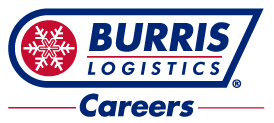Logistics Terminology Is Its Own Language

Logistics Terminology Is Its Own Language
Reading about the logistics industry can sound very foreign unless exposed to it. Also, logistics is a general term encompassing freight, distribution, warehousing, technology, etc. Layer on specific company vocabulary, and you have a recipe for confusion. Sure, you can learn this language over time, but what happens when you are a complex business like Burris Logistics, with logistics brands that service different industries?
Our culture is that of ONEBURRIS, where we work together to offer our customers multiple service offers from foodservice redistribution to freight, and with specific technology to support their needs. We must understand each other’s language. Seasoned Team Members from each of our business units came together to provide their most common terminology!
Burris Logistics:

- BSCP (Burris Supply Chain Portal) is a software developed by our in-house IT professionals that connects multiple systems for inventory, demand, quality, scheduling, etc., into usable data to help every aspect of the supply chain. Our Logistics Technology Team deploys this solution across all of our business units to assist our partners.
- CDL (Commercial Driver’s License) – a license necessary for driving commercial vehicles (tractor-trailers, buses, etc…). The Honor Foods fleet is operated by highly trained Burris Employee Drivers with CDLs.
- Cross Docking – the process of unloading inbound freight and immediately loading it onto a different outbound method of transportation, often across the same dock.
- Lead Time – the time between an order’s placement and delivery.
- ONEBURRIS – the initiative behind our unique brands is coming together as ONE to develop processes and campaigns to serve our customers best and develop our workplace culture.
- Reefer – a refrigerated or temperature-controlled trailer. These are easily recognizable by the refrigeration unit on the front of a 53′ trailer. Our Burris team can monitor the temperature of our trailers remotely to ensure cold chain integrity.
- WMS (Warehouse Management System) encompasses all warehouse operations from when the products arrive to when they leave (it also includes the purchase and sales of the products).
- 3PL (Third Party Logistics) is a company that provides outsourced logistics services, often including freight shipping arrangement and warehousing.
Honor Foods:

- Foodservice – food that is made, distributed, and/or sold to specific establishments like restaurants and schools.
- REDI – Foodservice Redistribution
- Redistribution – a redistributor that buys products from trusted vendors to sell and ship to other distributors. These distributors deliver directly to foodservice operators like restaurants, schools, and government buildings.
- SKU (Shelf Keeping Unit) – refers to one specific inventory item.
- Value-Added – additional services that make a product/service more valuable to the customer.
- “Wagon-Jobber” – refers to a distributor that buys food items in bulk and delivers smaller quantities of these items to their food retail customers.
Trinity:

- BOL (Bill of Lading) is a transportation document that acts as a contract between a shipper and receiver and includes details specific to the shipment.
- Drayage – the transport of ocean or rail containers to and from ports or rail yards.
- Expedited Shipping – a form of transportation that involves shipments moved at a faster rate than usual.
- Freight Brokerage is a business (like Trinity!) that connects carriers with truckloads.
- FMCSA (Federal Motor Carrier Safety Administration) is a federal organization whose primary mission is to reduce crashes, injuries, and fatalities involving large trucks and buses.
- FTL (Full Truckload) – when the carrier transports a full trailer of one designated shipment. Full trucks are brokered as a cost-saving method.
- HazMat is a type of specialty shipment that involves the transport of hazardous materials. Carriers must take extra care for safety and compliance reasons.
- Intermodal is a shipping mode that involves multiple modes of transportation. Most commonly, this refers to utilizing the rail in addition to trucks.
- Lumper – additional fee charged to the carrier when a shipper utilizes a third-party worker, called a lumper, to help load or unload trailer contents.
- LTL (Less-Than-Truckload) is a mode of transportation for freight that would not fill a full truckload trailer and consists of multiple shipments.
- TMS (Transportation Management System) is a software platform that gives shippers tools for control and visibility over their supply chains.
Conclusion
Like in different cultures, there is a basic need to understand each other, which often starts with language. Understanding each other means that you can work together. In the supply chain industry, different links do vastly different things. However, they are all connected and eventually come together to form a complete supply chain. Honor Foods requires freight, and Trinity can serve foodservice partners; therefore, understanding each other is imperative. We work together each day, to make sure our Team is aligned on service, culture, and taking care of our customers.
About ONEBURRIS
Established in 1925, Burris Logistics operates an expanding network of temperature-controlled warehousing and distribution centers from Maine to Florida and as far west as Oklahoma. This fifth-generation family-owned enterprise provides leading-edge logistics, transportation, and supply chain solutions, coast to coast, through our Brands: Burris Logistics (Direct-to-Consumer fulfillment “D2C”, distribution, warehousing), Honor Foods (a redistributor of frozen, refrigerated and dry foodservice products), and Trinity Logistics (a global freight solutions provider). For more information about our end-to-end supply chain solutions, please visit www.burrislogistics.com.



